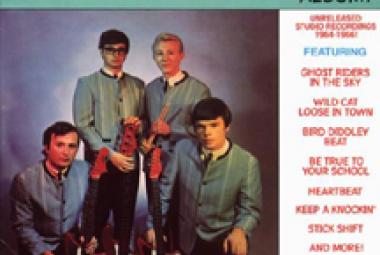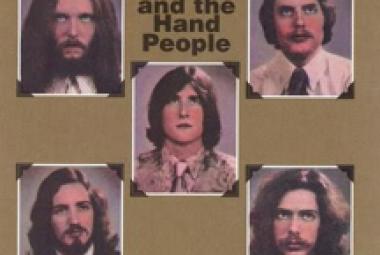Steppenwolf – Steppenwolf (1968): Steppenwolf grew out of a Canadian band called the Sparrows, and most of the bandmembers in Steppenwolf are in fact Canadian. Steppenwolf is best known for their massive #2 hit single “Born to be Wild”, written by Mars Bonfire (spelled “Mars Bondfire” on the record label) a/k/a Dennis Edmonton, a former bandmember in the Sparrows and the brother of Steppenwolf drummer Jerry Edmonton – actually, all three of those names are stage names (Edmonton is the capital city of the Canadian province of Alberta). The album Steppenwolf did nearly as well as the single, peaking at #6 on the Billboard album chart. Things moved quickly for Steppenwolf after that: Later in 1968, the band had another signature hit song, “Magic Carpet Ride” and an accompanying hit album Steppenwolf the Second – both “Magic Carpet Ride” and Steppenwolf the Second reached #2 on the charts. Steppenwolf then landed two songs on the soundtrack of the sex comedy Candy that was released in December 1968, “Magic Carpet Ride” and “Rock Me”, with the latter song included on their third album At Your Birthday Party (1969); and two other songs, “Born to be Wild” and “The Pusher”, both from Steppenwolf, showed up on the soundtrack of the landmark counter-culture film Easy Rider that was released in the summer of 1969. While Steppenwolf had continued success into the early 1970’s, “Rock Me” and At Your Birthday Party would be their last appearances in the Top Ten for singles or albums. A lyric in “Born to be Wild”, “heavy metal thunder” has led many to say that this was the first heavy metal song, even though this is actually a reference to motorcycles rather than a style of music. While they are not really a heavy metal band, Steppenwolf was certainly an important force in the development of hard rock music in America. With regard to the other well-known song from Steppenwolf, “The Pusher” – a Hoyt Axton song that clearly distinguishes between “dealers” in drugs like marijuana and “pushers” of drugs like heroin, and also features repeated declamations of “Goddamn” – my home town of Winston-Salem, North Carolina has a reputation as being kind of prudish; and their feud with Steppenwolf is rather well known in rock circles, as the City fathers repeatedly attempted to keep the band from singing “Goddamn” when they performed “The Pusher” there. (Lead singer John Kay obliged, though the concert crowds always enthusiastically filled in the offending word). There are no songs on Steppenwolf that I don’t love, and I regularly played the entire album straight through in my college days. There are two R&B covers, “Hoochie Coochie Man” (spelled “Hootchie Cootchie Man” on the record label, and originally titled “I’m Your Hoochie Coochie Man”) and also “Sookie Sookie”; a reminiscence by lead singer and head songwriter John Kay of his childhood called “Berry Rides Again”, where the band name-checks numerous Chuck Berry classics; political commentary in songs like “Desperation” and “The Ostrich” whose themes would be expanded into their fourth album called Monster (1969); and other favorites like “Everybody’s Next One”, “Your Wall’s Too High”, and “Take What You Need”.





